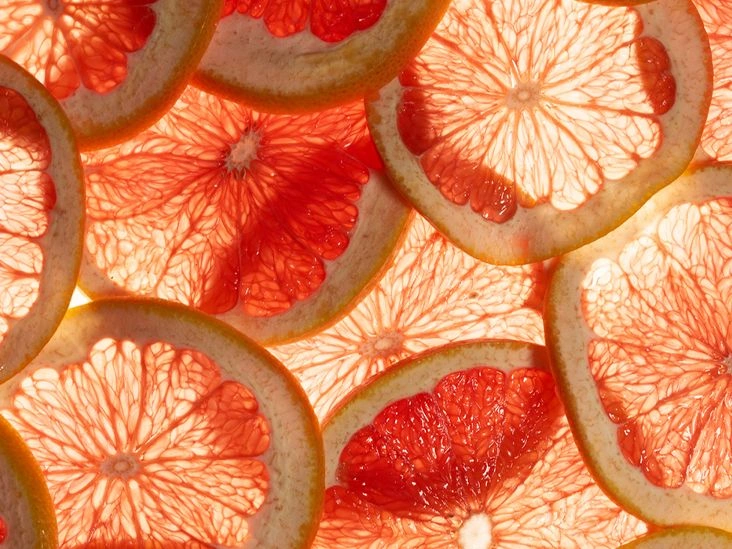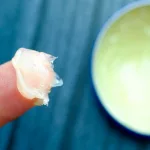Eating foods rich in collagen, like chicken, and those that encourage collagen formation, such as berries, can support your skin and overall wellbeing.
“What you eat plays a surprisingly big part in how youthful and vibrant your skin looks,” Krista Goncalves, CHN, a certified holistic nutritionist, told Healthline. “And it mostly comes down to collagen.”
Collagen is the protein responsible for skin’s framework, elasticity, and resilience. As we get older, our production declines — which helps explain why wrinkles and thinner skin become more common with age.
This decline helps explain the surge in collagen supplements on social media and store shelves. But are supplements superior to dietary sources of collagen? And which foods actually provide collagen?
Why prioritize food first
The main distinction between collagen from supplements and from whole foods is bioavailability — how readily your body can use a nutrient.
“Foods such as bone broth contain a form of collagen that your body can use immediately, which may make them better than supplements,” said registered dietitian Carrie Gabriel, MS, RDN. That said, research is limited when it comes to proving that collagen from foods is definitively more bioavailable.
Because over-the-counter supplements aren’t regulated by the Food and Drug Administration (FDA), relying on dietary strategies to boost collagen is probably a safer route.
Eating collagen-rich items or foods that stimulate collagen production may also supply the building blocks (amino acids) needed to support your skin goals.
“Three amino acids are particularly important for collagen creation: proline, lysine, and glycine,” explained registered dietitian and beauty specialist Katey Davidson, MScFN, RD. All three play a role in your body making more collagen.


Fish

Like other animals, fish have connective tissues and bones comprised of collagen. Some people say marine collagen is among the most readily absorbed. According to a , this type of collagen might be more bioavailable and particularly beneficial for skin health and elasticity.
That said, while tuna or salmon at lunch or dinner contributes to your collagen intake, the flesh of fish contains less collagen than other, less appetizing parts.
“We generally don’t eat the fish parts that are richest in collagen, like the head, scales, or eyes,” Gabriel said. If those options aren’t appealing, a marine collagen supplement could be an alternative.
Egg whites

While eggs don’t include connective tissue like many animal products, egg whites contain a relatively high amount of proline. That’s one of the amino acids needed for collagen formation.
Citrus fruits

Vitamin C is crucial for making pro-collagen, the body’s precursor to collagen. That means it supports collagen synthesis.
Citrus fruits — oranges, grapefruits, lemons, and limes — are packed with this vitamin. Try broiled grapefruit at breakfast, add orange segments to a salad, or stir-fry with yellow peppers.
Learn more about foods high in vitamin C.
Berries

Although citrus often gets credit for its vitamin C, berries are another outstanding source. Strawberries, raspberries, blueberries, and blackberries all provide ample vitamin C.
“Berries are also rich in antioxidants, which help shield the skin from damage,” Davidson said.
Tropical fruits

Tropical fruits like mango, kiwi, pineapple, and guava are also rich in vitamin C. Guava even contains a bit of zinc, another cofactor in collagen production.
Garlic

Garlic can add more than flavor to your dishes — it may help promote collagen formation, too.
Gabriel notes, “Garlic is rich in sulfur, a trace mineral that helps create collagen and slows its breakdown.”
Keep in mind the amount matters. You’d likely need to eat a lot for noticeable collagen benefits, which might not be practical, but including garlic regularly in meals is still worthwhile.
Can you eat too much garlic?Garlic is safe in customary amounts, but excess (especially raw) can cause heartburn, upset stomach, or increase bleeding risk if you take blood thinners. Don’t overconsume garlic solely for collagen.
Leafy greens

Leafy greens are staples in a healthy diet and may benefit your skin as well.
Spinach, kale, Swiss chard, and other greens owe their color to chlorophyll, which has antioxidant effects.
“Some research suggests eating chlorophyll increases the collagen precursor in skin,” Gabriel said.
Beans

Beans are a protein-dense food that often provide lysine, one of the amino acids needed for collagen synthesis. Additionally, many beans contain copper, another nutrient important for collagen formation.
Cashews

If you snack on nuts, reach for cashews. They supply zinc and copper, both of which support the body’s collagen-producing processes.
Tomatoes

Tomatoes are another underrated source of vitamin C; a medium tomato can supply a useful amount for collagen synthesis. They’re also rich in lycopene, a potent antioxidant.
Bell peppers

When you add tomatoes to a salad or sandwich, include bell peppers as well. They’re an excellent source of vitamin C.
Sugar and refined carbs can harm collagen
To give your body the best shot at producing collagen, prioritize animal or plant foods rich in collagen and fruits and vegetables loaded with vitamins and minerals.
If you don’t enjoy the specific foods listed, remember there’s no single source. A balanced diet with plenty of protein, from either plants or animals, helps provide the essential amino acids.
Other nutrients that support collagen formation include zinc, vitamin C, and vitamin E — so fruit and vegetables rich in vitamins and minerals are also beneficial for supple skin.
It’s wise to limit excess sugar and refined carbohydrates, like white bread and pastries. These foods can drive inflammation, which may interfere with collagen production.
Important questions about collagen and diet
It can be challenging to include a wide variety of foods in your diet — and some specialists wonder if eating collagen-rich foods actually results in firmer skin.
There’s a possibility that stomach acid breaks down collagen proteins, keeping them from reaching skin tissue.
Because dietary collagen for anti-aging skin effects is a relatively new research area, many experts are cautious about drawing firm conclusions.
Still, some studies are encouraging. A review of 26 studies suggested that oral collagen might have favorable effects on skin health, although more research is needed to be certain.
The takeaway
Increasing foods high in collagen could benefit your skin, hair, and nails. Options include chicken, fish, bone broth, and egg whites. Plant foods rich in vitamin C, like citrus and leafy greens, also support collagen production.
While evidence on how effective oral collagen is remains limited, adding more of these foods to a varied, balanced diet may be worthwhile.

























Leave a Reply
You must be logged in to post a comment.